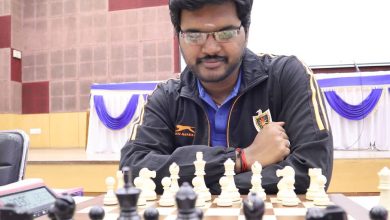Why Indian athletics federation does not want junior athletes to over-train and specialise too early | Sport-others News

Only four of 133 Indian participants at youth championships at the world and Asian level made it to ‘mainstream’ senior track and field. Just three of 103 youth medalls advanced to the senior level in India. These statics obtained from a survey resulted in a rethink within the Athletics Federation of India (AFI) about the junior programme and how to stop coaches from pushing young athletes to achieve quick success.Eliminating over-training that causes injuries and burnout in young athletes and preventing early specialisation in an event before the age of 17-18 was on the agenda of the Annual General Meeting of the AFI in Amritsar. Changes are also being proposed to limit the number of events for young athletes.
At the Asian youth (under-18) championships, it is proposed that Indian athletes will be fielded in the 100 metres, 200m, 400m, long jump, shot put, javelin and discus while they won’t be fielded in middle dance and long dance running, triple jump and the hammer throw to reduce the impact on the body of young athletes, according to a top AFI official.
Athletics Federation of India (left to right) senior vice president Anju Bob George, planning commission chairman Lalit Bhanot, president Adille Sumariwalla and secretary Ravinder Chaudhry at the AGM in Amritsar on Saturday. Credit: AFI
“The AFI has initially discussed that we should not field a team at the Asian youth level, but then we felt we could lose talented athletes to other sports. We will now field under-18 athletes in limited events. Also an under-16 athlete is not going to be allowed to participate in the under-18 category,” AFI’s planning commission chairman Lalit Bhanot said.
Athletes in search of a job and for prize money are willing to train too much too early and the coaches are willing to push them to the limit to make a name for themselves. “We have talented athletes, but because of the wrong concept of quick success they are over-training. We have to make our coaches understand this. Slowly there is a change in mindset. When the youth Asian competition is held hardly any Japanese or Chinese athletes participate, there is a reason for that,” Bhanot added.
Injury rate
Young athletes with career-threatening injuries is common, says Khyati Vakharia, an MD in sports medicine and a former pole vaulter.
“In my own practice, I have seen a lot of athletes who come to me with injuries close to the muscle-bone junction. And they are one of the most difficult to treat because during the growth spurt of a child, the bone is growing at a faster rate than the muscle. At where it is anchored to the bone it becomes tight. So suppose they are over-training we are going to have injuries at the tightest junction. We counsel athletes and tell them to bring down the load but the athlete says ‘but my coach told me to do this’. That becomes a vicious cycle and you are just putting on a band-aid all the time. We see a lot of stress fractures,” Vakharia, a member of AFI’s medical committee, said.
Changing the mindset of youth athletes and their coaches won’t happen overnight but the federation needs to keep at it.
Athletes ahead of race during Junior Athletics meet. (AFI)
“The notion is to think that my success at the junior level is going to mean a lot in terms of my success at a senior level. Which in athletics is on the contrary. So being a late-peaking sport, it becomes more important to make sure that young athletes go through the right steps to make sure they peak at the right time. Before the age of 17 or 18 they should do multisports,” Vakharia added.
Doping an issue
The AFI has asked the National Anti-Doping Agency to test athletes at state meets in order to curb the menace of doping among juniors.
AFI president Adille Sumariwala spoke to NADA officials and will also share dates of state meets with the anti-doping watchdog. In September, athletes scooted when dope control officers came to the Delhi state meet at the JLN Stadium.
“I spoke to NADA yesterday and we want them to be at state meets. In my discussion with NADA, I told them that we would let them know where and when the state meets are. India’s reputation is at stake. Today we are number 2 (in doping). If we don’t stop this we will have a problem. We don’t want that to happen if we have to bid for the Olympic Games etcetera. We have to resolve this problem,” Sumariwalla, who is also a vice-president of World Athletics, said.







